Picking up the baton as the world’s best chef
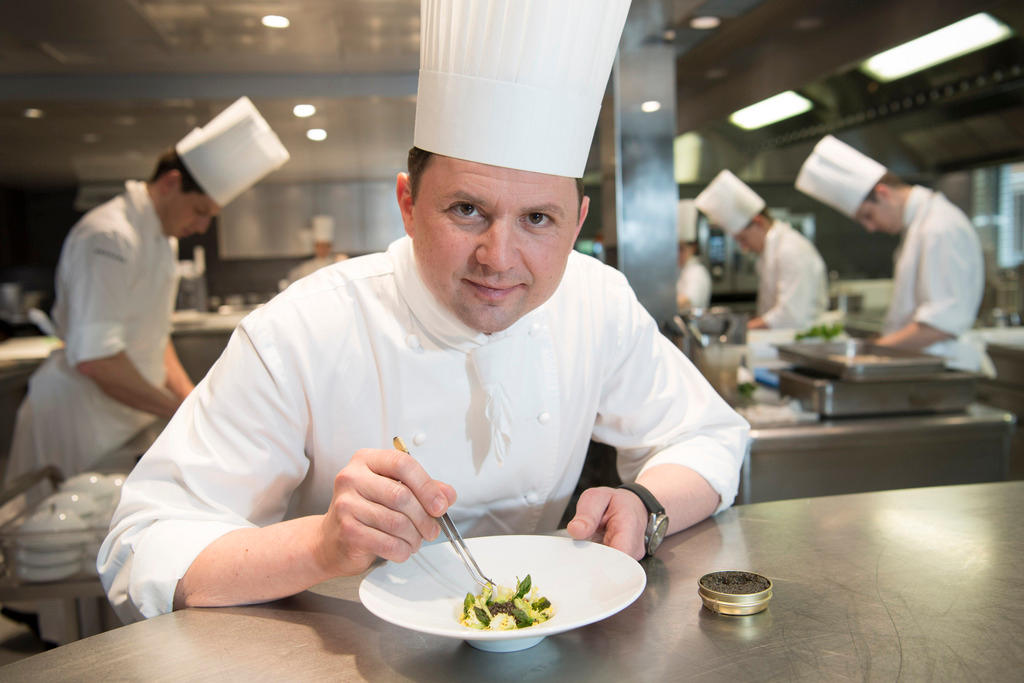
There’s a persistent clicking sound inside the kitchen of the Hôtel de Ville. It takes a while to locate it and then, I realise… it’s coming from the chef, Franck Giovannini.
The at-times frantic clicking on and off of a pen is the only sign of the adrenaline below the surface in this boyish-looking 42-year-old. He’s leading a lunch service at the restaurant in the Lausanne suburbs, which is adorned with three Michelin stars and 19 Gault&Millau points. Last year it was also named best in the worldExternal link in a new French ranking.
But what must it be like to take on the mantle as the world’s top chef at a restaurant where the previous two star cooks died prematurely?
A mysterious suicide
When asked why Benoît Violier might have committed suicide, his widow Brigitte Violier and restaurant shareholder André Kudelski have repeatedly said they have no idea. They strongly refuteExternal link allegations by financial magazine BilanExternal link that he was the victim of a wine scam that left the restaurant with a large debt.
Shortly before Violier’s death the restaurant was rated number one in the world by La Liste, a new ranking by the French foreign ministry. How did Violier react? “Being named top in the world was the ultimate consecration because this title didn’t exist before,” says Brigitte Violier. “It was the result of 20 years of work. Ever since he was in gastronomy he always wanted to reach that level. Luckily he had it at the right time, he was able to live to see it.”
The suicide of chef Benoît Violier earlier this year sent shockwaves through the gastronomic world and concern at yet another death in this high-pressure profession. His successor may be an anomaly, showing how to be a top chef and cope with the stress of such a position.
Giovannini moves calmly between inspecting meticulous plates to posing for photos with visitors and chatting with a cooking class quietly happening in the corner.
Nor is he bothered that a journalist is perched at the end of the serving table, sampling a dizzying 9-course taster menu, and watching all the interactions in the kitchen. His sous chefs are clearly happy, occasionally tossing and catching their tall toque hats, and even the odd Evian bottle.
It’s only been a few months since the traumatic Sunday when Violier used his hunting rifle to kill himself in the apartment above the restaurant. Seven months prior to that, Violier’s predecessor and mentor Philipp Rochat died, after falling ill while cycling. Even this wasn’t the first taste of tragedy for the staff. Rochat’s wife Franziska Rochat-Moser, a top marathon runner who jointly ran the restaurant, died in an avalanche in 2002.
Today, Violier’s name is still on the front of the building and his cookbooks are stacked up in the entrance. One on game, his speciality, has 1,086 pages. There are Michelin guides too, which call the Hôtel de Ville a “temple of gastronomy”.
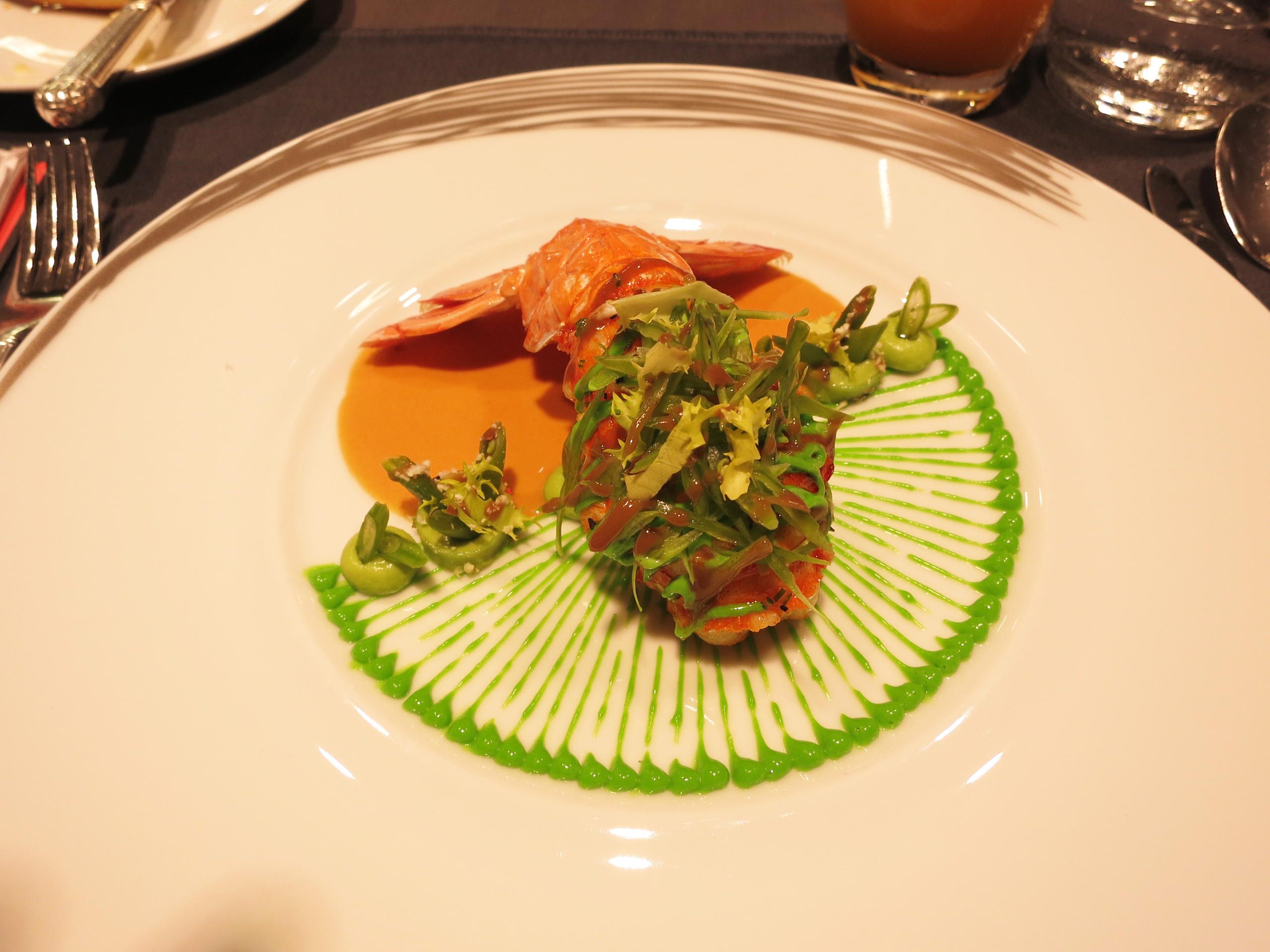
The restaurant’s three Michelin stars were racked up by Violier and the previous two internationally revered chefs, Rochat and Frédy Girardet. The latter two have legendary status in the restaurant, which still serves dishes they created.
“I try to be balanced”
Seated in a guest waiting area in his chef’s whites, Giovannini looks a little uncomfortable talking about himself but gamely answers questions. We skirt around why Violier might have committed suicide. Instead we debate the pressure of such a boiler pot job, now that he is living it.
Giovannini’s balanced approach and quick humour seem to help. Unlike Violier, he lives half-an-hour away in the countryside with his wife and two children. He works 8am to midnight on weekdays, but weekends are sacred, a time for relaxing and barbecues with friends.
“I’ve been here 21 years. I don’t feel like I have too much pressure. I do the things as I know how and for now everyone is very happy with it. I try to be very balanced with my personal life.”
But that doesn’t mean he hasn’t experienced stress in the past.
A lot of yelling
Giovannini and Violier started at the Hôtel de Ville at the same time under the tutelage of Girardet and Rochat, and became “like brothers”, working side by side for 20 years.
“I always wanted to be somewhere in food,” says Giovannini. His father, whose own dreams of being a chef were thwarted, encouraged his son to pick up the trade. After a spell working for Swiss chef Gray Kunz in New York, Giovannini returned to Switzerland to take up the position of commis chef, chopping vegetables in the Hôtel de Ville kitchen.
“I didn’t really want to come because I heard really terrible stories about it,” Giovannini laughs. He describes Girardet as a “genius with food and flavour” who taught him “la rigueur” (precision). “I was lucky to work with him for a year and a half, even though it wasn’t easy because I was 20 and there was a difficult ambiance. You got yelled at a lot.”
“We don’t yell any more. People are surprised that the kitchens are very quiet. I personally think that we get better results now because people can talk to you if they have a problem. If we had a problem before, we couldn’t go to Mr Girardet because you’d think ‘Oh my God, I’m going to get beat’,” he says, laughing again.
He’s right, the kitchen is quiet except for shouts of “service” and the banging of pans.
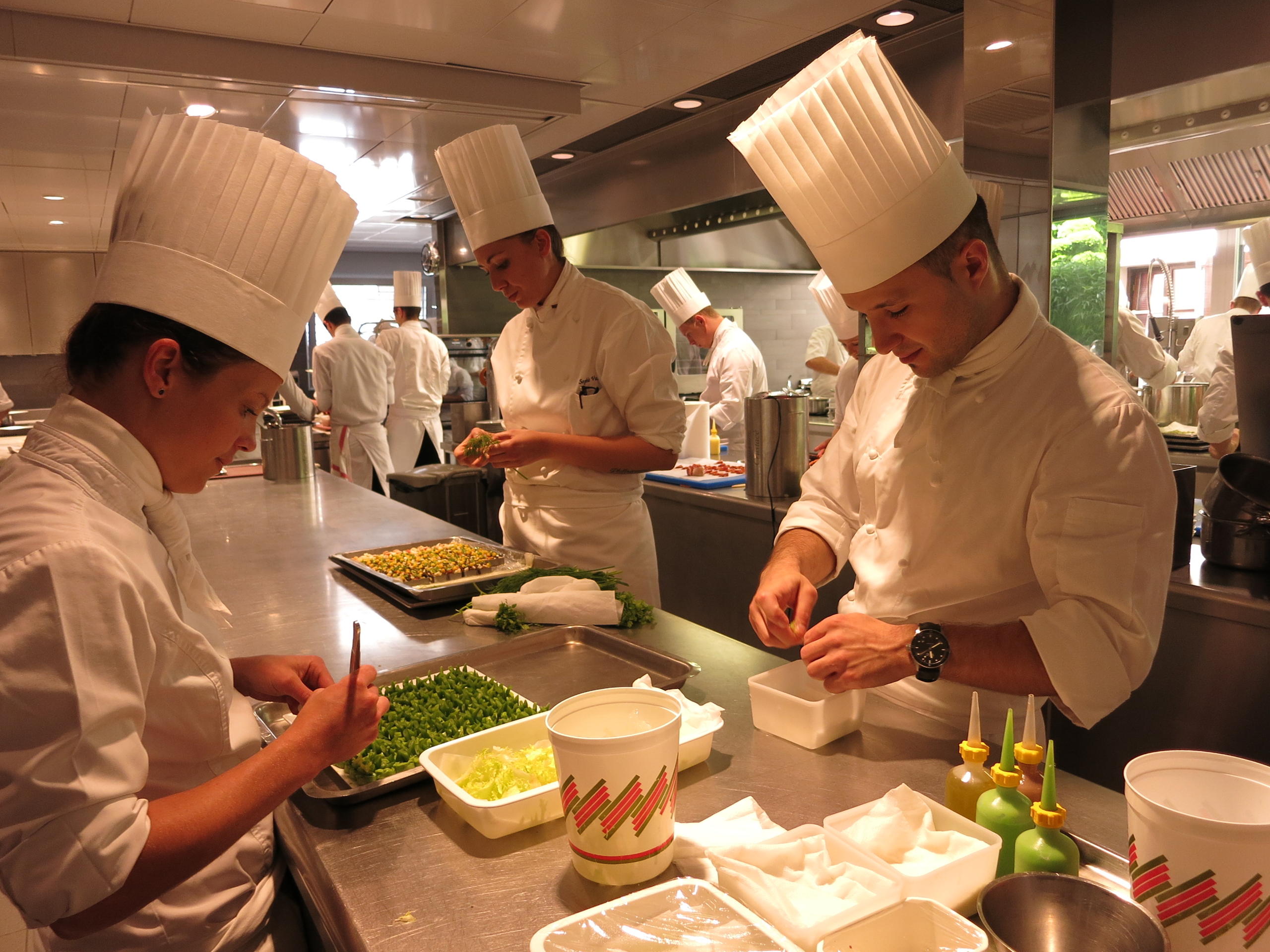
New era
Giovannini worked closely under Violier and when Violier took over the restaurant from Rochat in 2012, he was effectively running the kitchen.
For Violier’s widow, who runs the business, he was the obvious choice as chef. “Franck was the first person I thought of,” says Brigitte Violier. The two families were always very close. “After Benoît, he was the person I knew the most in the restaurant. It’s important to continue with people who you trust and who you know well. He always brings expertise and creativity when it comes to cooking and products, and there’s lightness in his recipes.”
She believes the combination of Girardet, Rochat and Violier has given “this place an incredible dimension. It is known worldwide because of the three chefs, and now we hope to mark a new era with me and Franck”.
Will the restaurant hold on to its rankings in this new era? Gault&Millau and Michelin points come out in October. “We will do everything we can to ensure that we don’t lose the stars,” she says, musing that if not, “perhaps different measures will be taken as a result”.
At the time, Violier’s death after being named top chef in the world was compared to the death of Bernard Loiseau, who shot himself with his hunting rifle in 2003 after losing two points in the Gault&Millau guide. It later emerged that Loiseau suffered from clinical depression.
The threat of losing ratings is “of course” always at the back of a chef’s mind, Giovannini concedes.
“I don’t want to be the first one who has only two stars, I have to say. We don’t cook for Michelin or Gault&Millau but of course we think about it because it’s part of the thing. We are doing everything we can to keep that star. We are keeping up the same quality. If they decide to take a star away it’s not a quality question, maybe its politics.”
How will he cope if the restaurant does lose a star? “You can only do your job properly every day and that’s what we do twice a day.”
Will Giovannini’s pragmatism stand him in good stead in the anxious period ahead?
The best Swiss restaurants
Who’s the best depends on which ratings system you follow. Michelin is the oldest and most popular guide, anchored in haute cuisine, while Gault&Millau is slanted towards Nouvelle Cuisine and ranks purely based on the food.
Three Swiss restaurants have the highest Michelin ranking of three stars (categorised as “exceptional cuisine” and 19 Gault&Millau points (until 2004, 19 was the highest rating given by the guide): the Hôtel de Ville; Andreas Caminada’s Schauenstein in Fürstenau; Peter Knogl’s Cheval Blanc in Basel. 18 restaurants have 2 Michelin stars and 92 have one star.
Six restaurants have 19 Gault&Millau points. The Hôtel de Ville, Schauenstein, L’Ermitage de Ravet, Domaine de Châteuvieux, Hotel-Restaruant Didier de Courten, and Cheval Blanc.
Schauenstein is the only Swiss restaurant in the San Pellegrino 50 best restaurants listExternal link.
The Hôtel de Ville was ranked number one by La Liste top 1,000 restaurants, seen as France’s answer to the UK’s 50 Best Restaurants. Also in the top 100 are Schauenstein (5) Cheval Blanc (67) and Adelboden (93) in Steinen.
Do you experience stress in your job? How do you cope? Tell us in the comments section below.
Contact the author on twitter @jessdace

In compliance with the JTI standards
More: SWI swissinfo.ch certified by the Journalism Trust Initiative

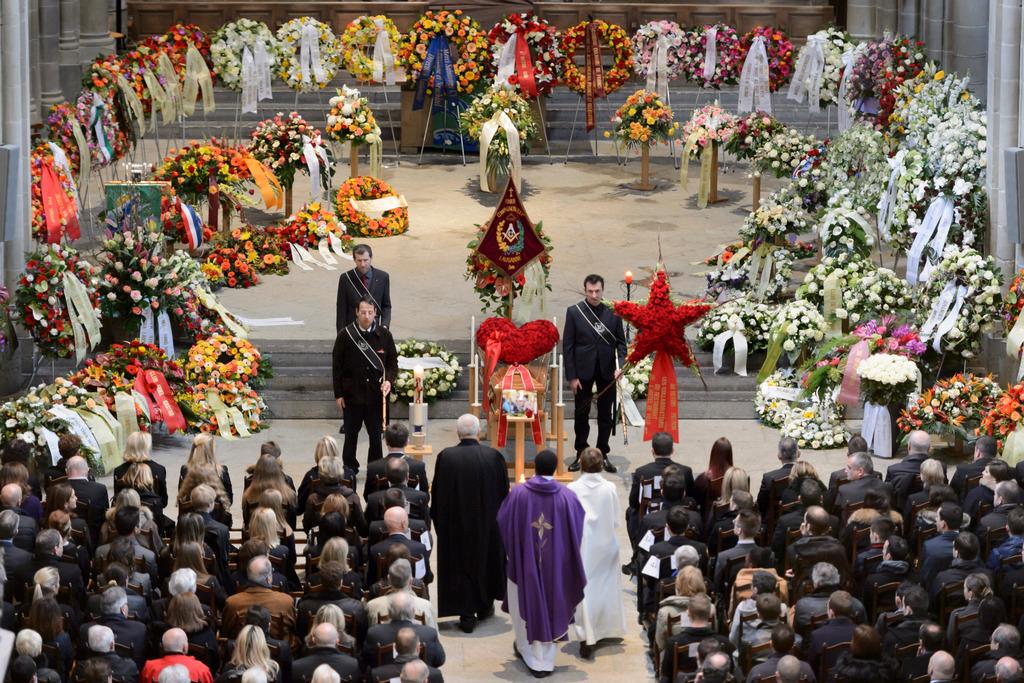
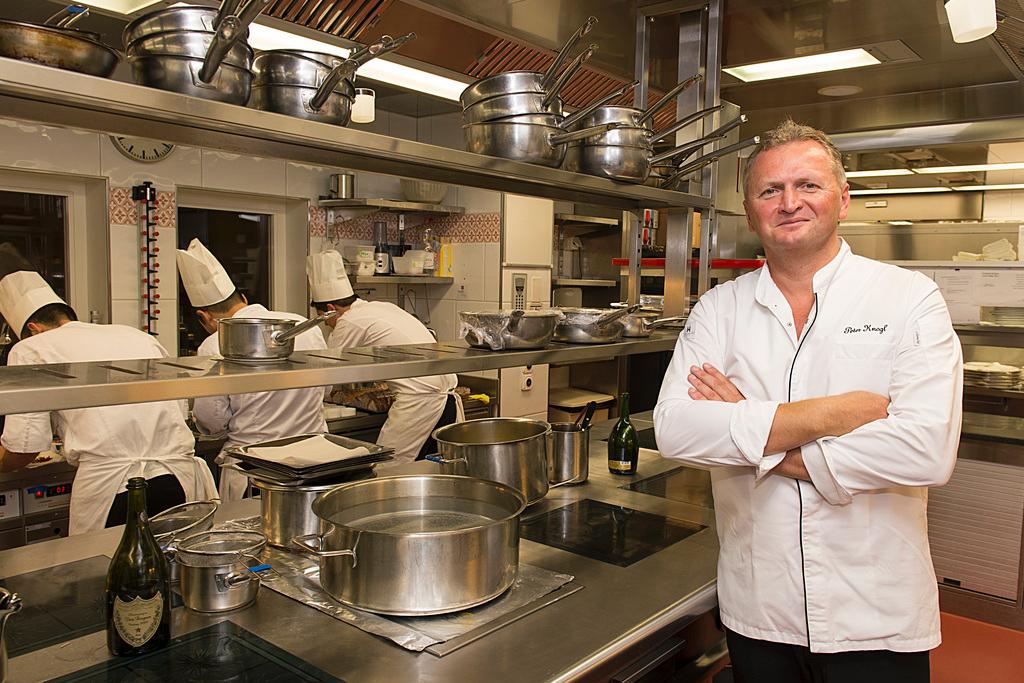
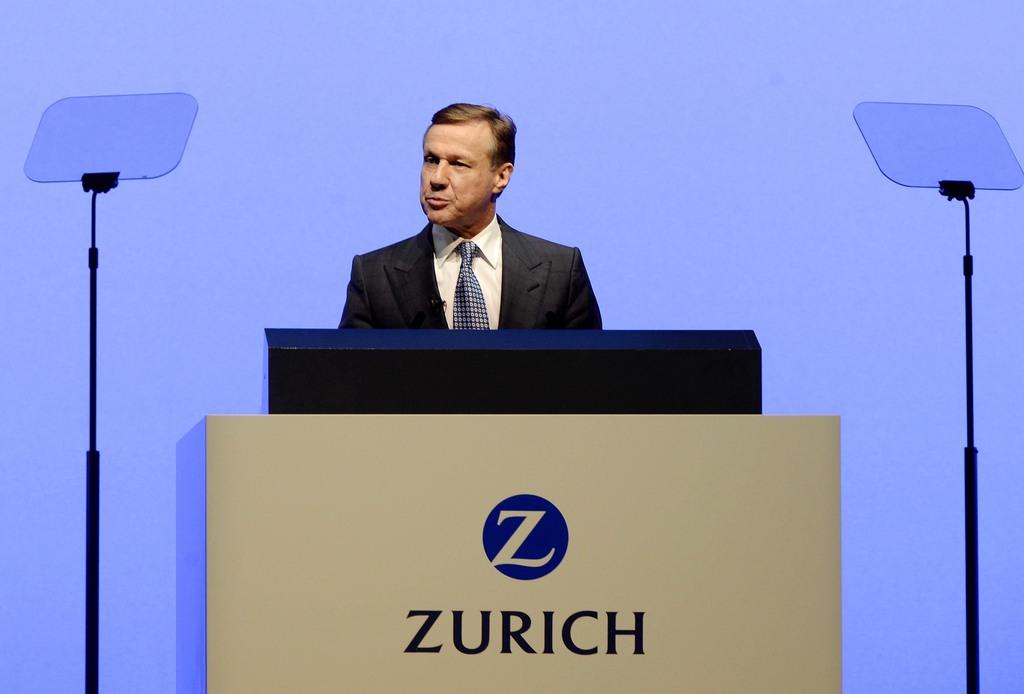
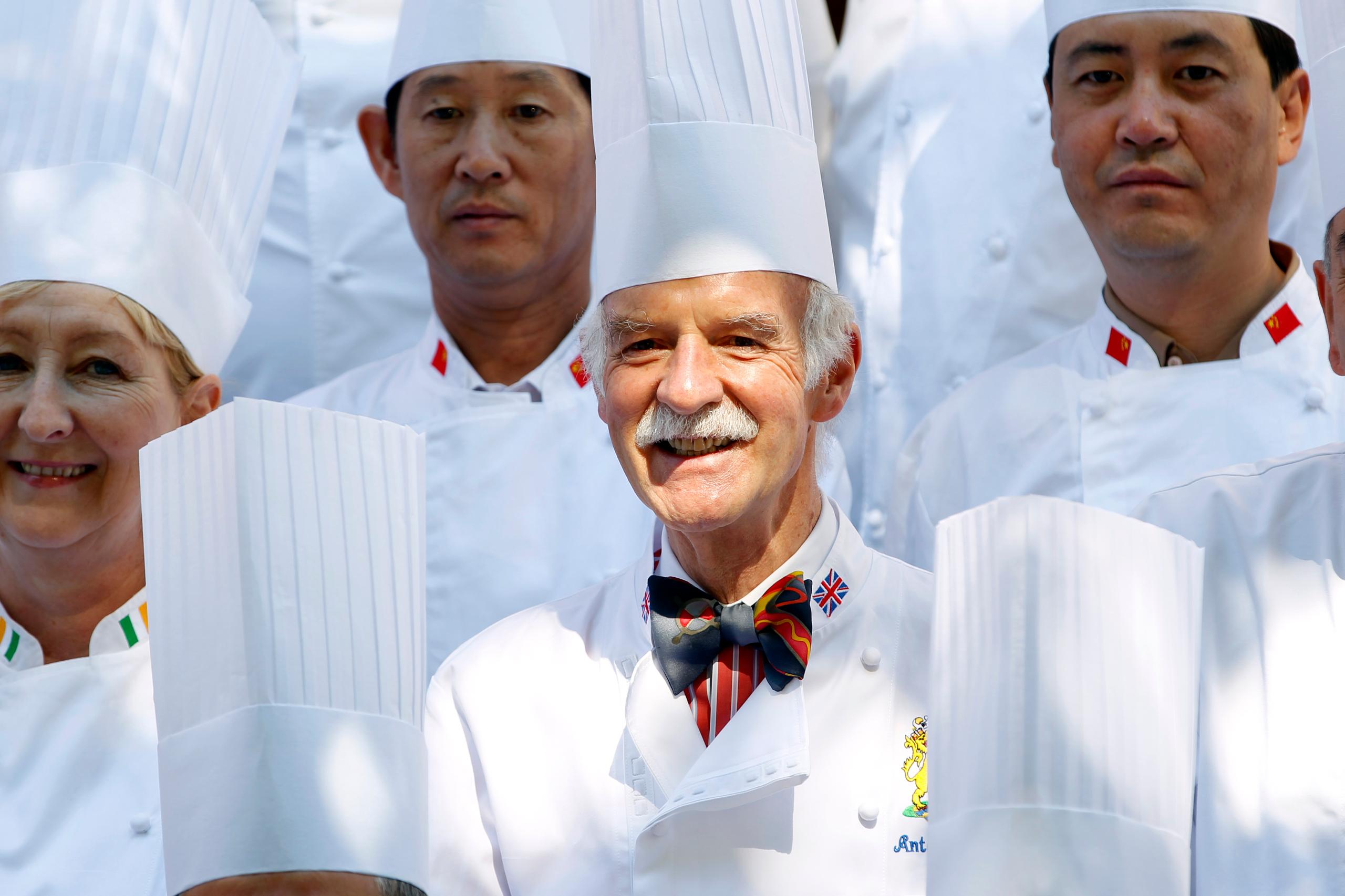
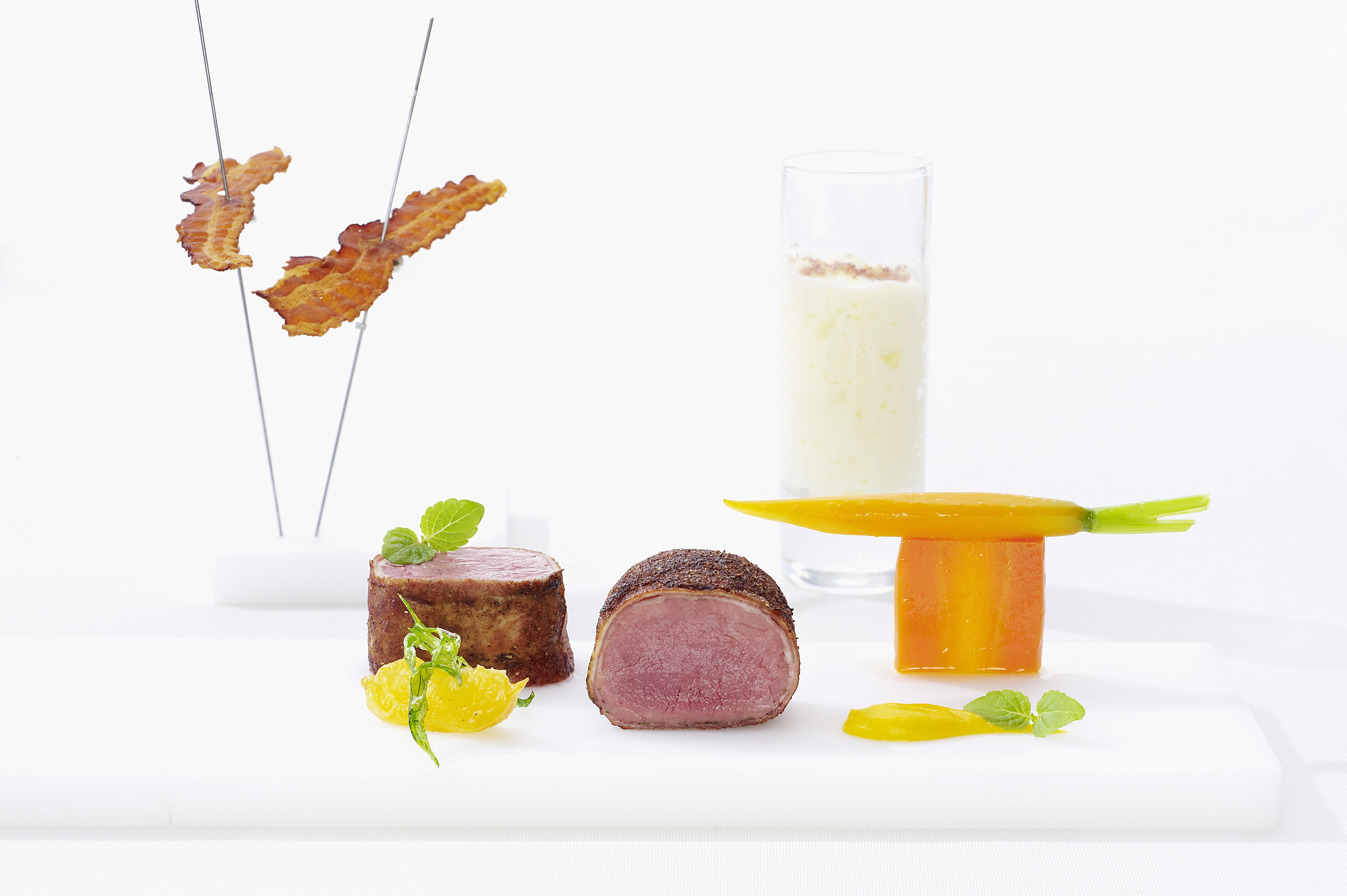
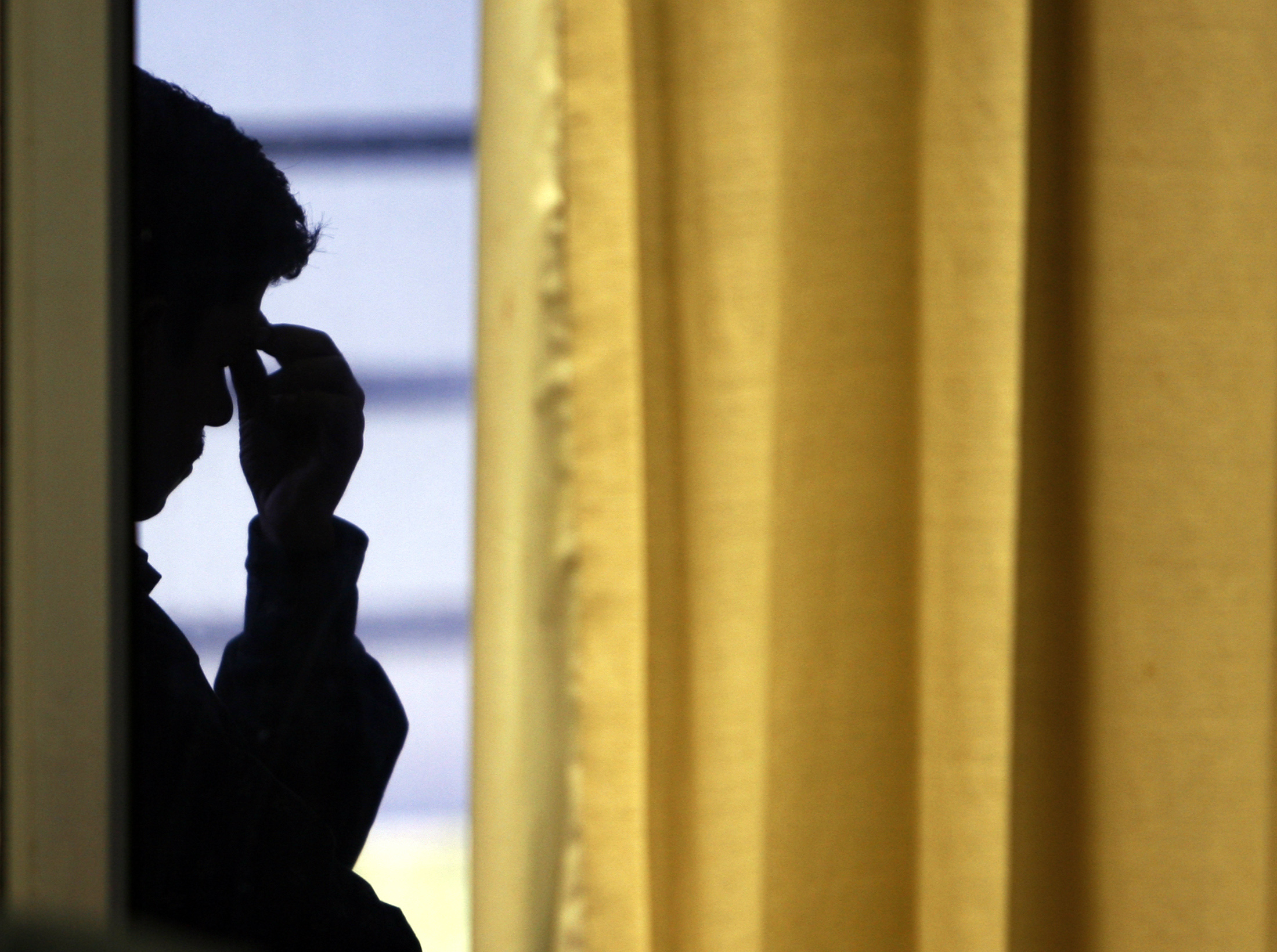
You can find an overview of ongoing debates with our journalists here. Please join us!
If you want to start a conversation about a topic raised in this article or want to report factual errors, email us at english@swissinfo.ch.